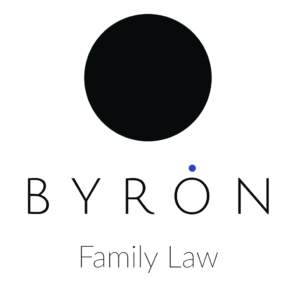A few words about
Children & Parenting
Children & Parenting
A brief summary
The best interest of the child is the paramount consideration.
Parenting arrangements can be formalised in a Parenting Plan or
Parenting Order
A Parenting Order is binding and enforceable.
A Parenting Plan is is not a legally enforceable agreement.
The Courts will consider any previous Parenting Plan.
A Parenting Plan can supersede a previous Parenting Order.
A Parenting Order is less flexible but can reduce conflict.
Any Parenting Plan or Parenting Order generally operates until the child/ren turn 18 years.
Children & Separation
Separation is a stressful and difficult time not just for you, but also for your children. It is important to remember that both parents are the most important people in your children’s lives. The best arrangements for the future of your child are ones which:
- your child continues to have a loving and meaningful relationship with both their parents and other family members;
- both parents continue to co-parent and share the responsibility for their child;
- your child lives in a safe environment free from family violence or abuse.
At Byron Family Law, we understand that every family is different, so the arrangements that work for your family may be different from other families. It is best to make arrangements that work best for your child.
Some important considerations when agreeing on arrangements for your children include:
- their age;
- a regular and flexible routine;
- sufficient notice if the routine is to change;
- is it reasonably practical for the child to spend equal time or substantial and significant time with each parent;
- how their time will be spent with other significant persons in their lives (i.e. grandparents and other relatives);
- important decisions about school, health care, sport, or religious matters; and
- ensuring the child continues to participate and experience their culture.
The law regarding children’s arrangements are complex so it is important to obtain expert family law legal advice.
Making arrangements for children
At Byron Family Law we work together with cousellors, psychologists and other experts to help you and the other parent reach an agreement for the arrangements for your children. There are a number of options available to you after you reach an agreement. You can take no legal steps at all, or set out those arrangements in a Parenting Plan or in an order made by a court, known as a Parenting Order.
Parenting Plan
If your relationship is amicable, a Parenting Plan might be the best option. Even where you have reached agreement, a Parenting Plan is a useful as a record of the agreement, and the plan for the future. It is best to obtain advice from an experienced Family Lawyer as well as support from a qualified counsellor.
Parenting Order
If you require a legally enforceable arrangement for your child/ren, then a Parenting Order is needed. They typically address or prohibit specific behaviours such as non-denegration, or where there is a history of violence, a requirement for supervised time. A Parenting Order can cover many different issues, such as parental responsibility, living arrangements, special occasions and changeover, communication and interstate and international travel.
Byron family law
We believe that it should not cost you to have options.
We offer free initial consultations.
Frequently Asked Questions
If you want to change an existing court order, you will need to show that there has been a significant change of circumstances that makes a change necessary.
Relocation is the term used when you move with your child/ren to another town, state or country. If it is going to limit the time your child/ren live with or spend with a parent or another significant person in their lives, a court may not give permission. If your child/ren primarily lives with you and you need to relocate, you should first try to talk to the other parent.
It is very important to seek legal advice before applying to the Court for a Recovery Order. If your child is in immediate danger you should contact the police.
A person concerned with the care, welfare and development of a child can apply to the Court for parenting orders. This includes a Grand-parent, other family member such as an Aunt or Uncle or a Step-Parent. The Court’s primary consideration is always the best interest of the child.
When children are unable to live with their parents, someone in the extended family or a family friend might become their primary carer including, aunts, uncles, grandparents, sisters and brothers in Australian families. This is called kinship care. Kinship carers don’t have set roles as parents do. A child may have come to live with you for a short time, until their parents can care for them. Or you could be raising the child in the long term because the child’s parents can’t do it themselves.

